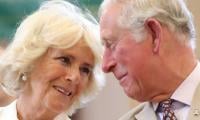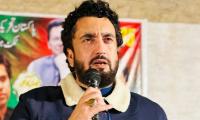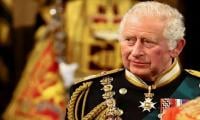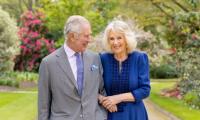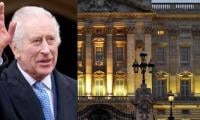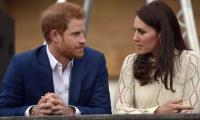Instrumental in reviving the Muttahida Majlis-e-Amal (MMA), an alliance of religious parties, the Jamaat-e-Islami’s Karachi chapter has also jumped into the electoral fray, hoping that the coalition will help the party to regain its lost turf in the city. However, analysts believe there are dim chances for the JI to make a significant achievement in the city.
The MMA is an alliance of five religio-political parties: the JI, the Jamiat Ulema-e-Islam-Fazl (JUI-F), the Jamiat Ulema-e-Pakistan (JUP), the Markazi Jamiat Ahle Hadith (MJAH) and the Tehreek-e-Islami Pakistan (TIP).
On June 24, the alliance had announced the names of its candidates for Karachi’s 21 seats of the National Assembly and 44 seats of the Sindh Assembly for the upcoming general elections. The JI has received largest share of the tickets – 15 for National Assembly and 23 for provincial assembly seats.
The JI has fielded its key Karachi leaders in various National Assembly constituencies, seeking to capitalise on the inner crisis of the Muttahida Qaumi Movement (MQM) and to woo its Urdu-speaking voters, who used to support the former until the emergence of the latter in the 1980s.
Among the JI’s candidates, Muhammad Hussain Mehanti (NA-247), Asadullah Bhutto (NA-242) and Muhammad Laeeq Khan (NA-251) are those who emerged victorious in the 2002 general polls from the MMA platform.
Prominent among other candidates included JI Sindh chief Dr Mairajul Huda Siddiqui (NA-256), Karachi chief Hafiz Naeem Ur Rehman (NA-250), former Korangi Town Nazim Abdul Jamil Khan (NA-240), Osama Razi (NA-243), Zahid Saeed (NA-244) and Saifuddin Advocate (NA-245).
Electoral history
The MMA won five national and six provincial assembly seats in the 2002 general polls in Karachi. In the 2008 and 2013 general elections, all the religious parties – except the JI that had boycotted the 2008 polls – contested separately in the metropolis and could not win back the seats they had secured in the 2002 polls.
Even in the local government elections held in December 2015, the religious parties contested separately, and the JI, one of the MMA’s key components, preferred to form an alliance with the Pakistan Tehreek-e-Insaf. However, the religious parties could not perform remarkably.
JI leaders are of view that the alliance would perform well in the July 25 polls in Karachi. “Traditionally, Karachi’s residents supported religious parties, but an ethnic party [a possible reference to the MQM] used violence and rigging to steal the city’s mandate. In all the episodes, some hidden powers, including international forces, played a role in imposing the group on the metropolis for their vested interests,” Bhutto, a JI’s central leader, told The News.
However, analysts believe that the JI started losing its support base, mainly among the Muhajir community, after the emergence of the MQM in the 1980s.
In the 1970, the JI won two seats on its own, and later in 1977 it secured three seats under the banner of the nine-party Pakistan National Alliance. During Ziaul Haq’s infamous non-party elections in 1985, the party won three seats of the National Assembly.
However, after the emergence of the MQM, the JI lost its support base and could not perform significantly in 1988 and 1990 when it was part of the nine-party Islami Jamhoori Ittehad. In 1993, the JI from the platform of the Paksitan Islamic Front managed to win a single seat in Karachi mainly because the MQM boycotted the National Assembly elections. In 1997, the group again boycotted the polls.
Regaining lost turf?
Analysts believe the JI is not in a position to regain its lost turf in the city. Tausif Ahmed Khan, a Karachi-based political analyst, said that first the emergence of the MQM in the 1980s and now the popularity of the PTI had in fact damaged the support base of the JI in the city.
“Doubtlessly, the JI has more organised and resourceful religious parties and conduct maximum activities in the city,” Khan told The News. “But it is becoming weaker gradually not only on the electoral front but also now on organisational level.”
He cited the emergence of the MQM and the PTI as the key reason for the JI’s downfall, and said that because of distancing itself from Jihadi activities, the JI had lost attraction among most of the aggressive youths.
Khan believed that the JI under the banner of the MMA might win one or two seats in Karachi. Insiders in the JI say the party has estimated the chances of winning in the city’s Pashun areas and it is this reason why the party has chosen NA-250, comprising SITE Town, for its Karachi chief Rehman, who has been contesting elections against Awami National Party Sindh chief Shahi Syed.
“Because of the party district president Abdul Razzaq’s personal clout and successes in the local government polls, it is likely to achieve some success in District West.” The party is also optimistic about winning the NA-242 and NA-247 seats.
The picture shows a pharmacy. — AFP/FileThe Karachi administration has launched a campaign to check the expiry dates...
In this still, Karachi Mayor Barrister Murtaza Wahab addresses an event on April 25, 2024. — Facebook/Barrister...
In this still, Sindh Inspector General of Police Ghulam Nabi Memon chairs a meeting at the Central Police Office on...
Representational image shows police tape. — AFP/FileAn elderly man who ran a general store was shot and killed in...
A handcuffed suspect stands behind the bars with a policeman standing outside the jail in this undated image. —...
In this still, Sindh Chief Minister Syed Murad Ali Shah meets federal energy minister Owais Ahmad Khan Laghari in...

